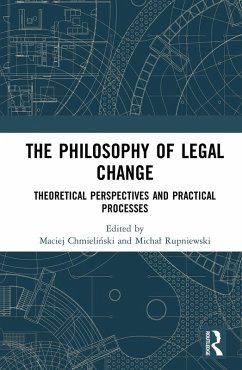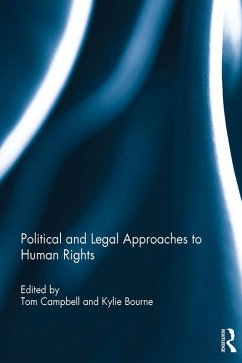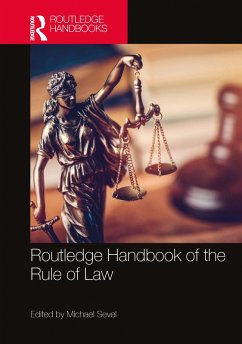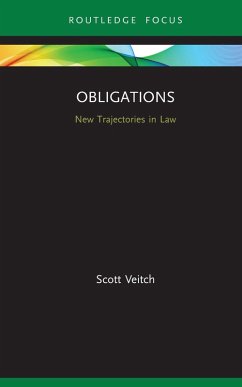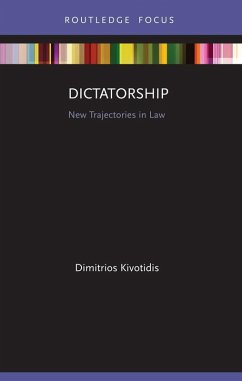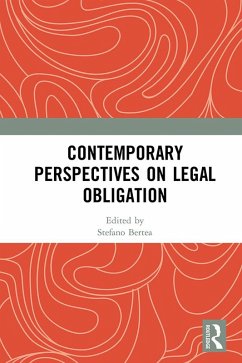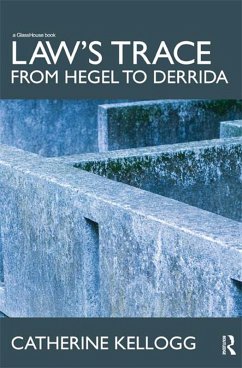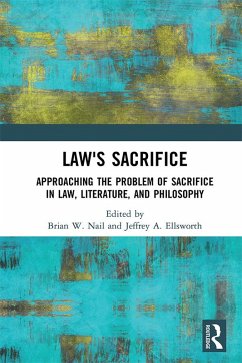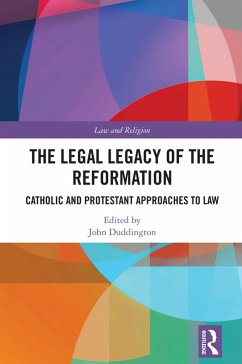
New Essays on the Nature of Rights (eBook, ePUB)

PAYBACK Punkte
40 °P sammeln!
This original collection of jurisprudential essays furthers our understanding of the nature of rights. In Part 1, Halpin considers the value of Hohfeldian neutrality when theorising about law in general, and legal rights in particular, and Kurki focuses on Hohfeld's operative notion of power. In Part 2, Kramer rebuts Wenar's objections to his Interest Theory of rights, and May provides a comparative defence of the Interest Theory against Wenar's Kind-Desire theory of claim-rights. Penner then pursues legal doctrine, focusing on whether judges hold the powers of their office as rights, an issue...
This original collection of jurisprudential essays furthers our understanding of the nature of rights. In Part 1, Halpin considers the value of Hohfeldian neutrality when theorising about law in general, and legal rights in particular, and Kurki focuses on Hohfeld's operative notion of power. In Part 2, Kramer rebuts Wenar's objections to his Interest Theory of rights, and May provides a comparative defence of the Interest Theory against Wenar's Kind-Desire theory of claim-rights. Penner then pursues legal doctrine, focusing on whether judges hold the powers of their office as rights, an issue over which Wenar and Kramer have clashed. Sreenivasan, utilising a novel test case involving pure public goods, argues that the third party beneficiary objection to the Interest Theory is fatal. McBride builds on Sreenivasan's Hybrid Theory of claim-rights to construct his new Tracking Theory of rights. Cruft then argues that the best extant versions of the Interest and Will Theories of rights cannot avoid a form of circularity, and Van Duffel argues that meeting four adequacy constraints, which he proposes, counts in favour of any theory of rights. In Part 3, Andersson proposes a tie breaking procedure for rights conflicts in the applied realm of politics, and Steiner concludes by alleging that Kant's principle of right, a standard of corrective justice, has distributive implications. 'A fine collection of cutting-edge essays on the most important normative concept of modernity.' Professor Leif Wenar, King's College London 'This important collection proceeds much beyond the famous 1998 A Debate Over Rights which sets the stage for the debates concerning rights since then. It explores three aspects of rights. First it re-examines the Hohfeldian classification and highlights its importance and relevance. Second it investigates and develops the debates between the interest and the will theory. It includes essays by the main established proponents of these two positions as well as essays by newcomers to this field. The different essays in this part address each other in ways which sharpen and clarify the disagreements and provide new original arguments for the contending views. Last, it provides a new perspective on the debates concerning conflicts of rights and the ways to overcome them. This collection will no doubt dominate the future conceptual discussions concerning the nature of rights and their role in political theory.' Professor Alon Harel, The Hebrew University of Jerusalem




